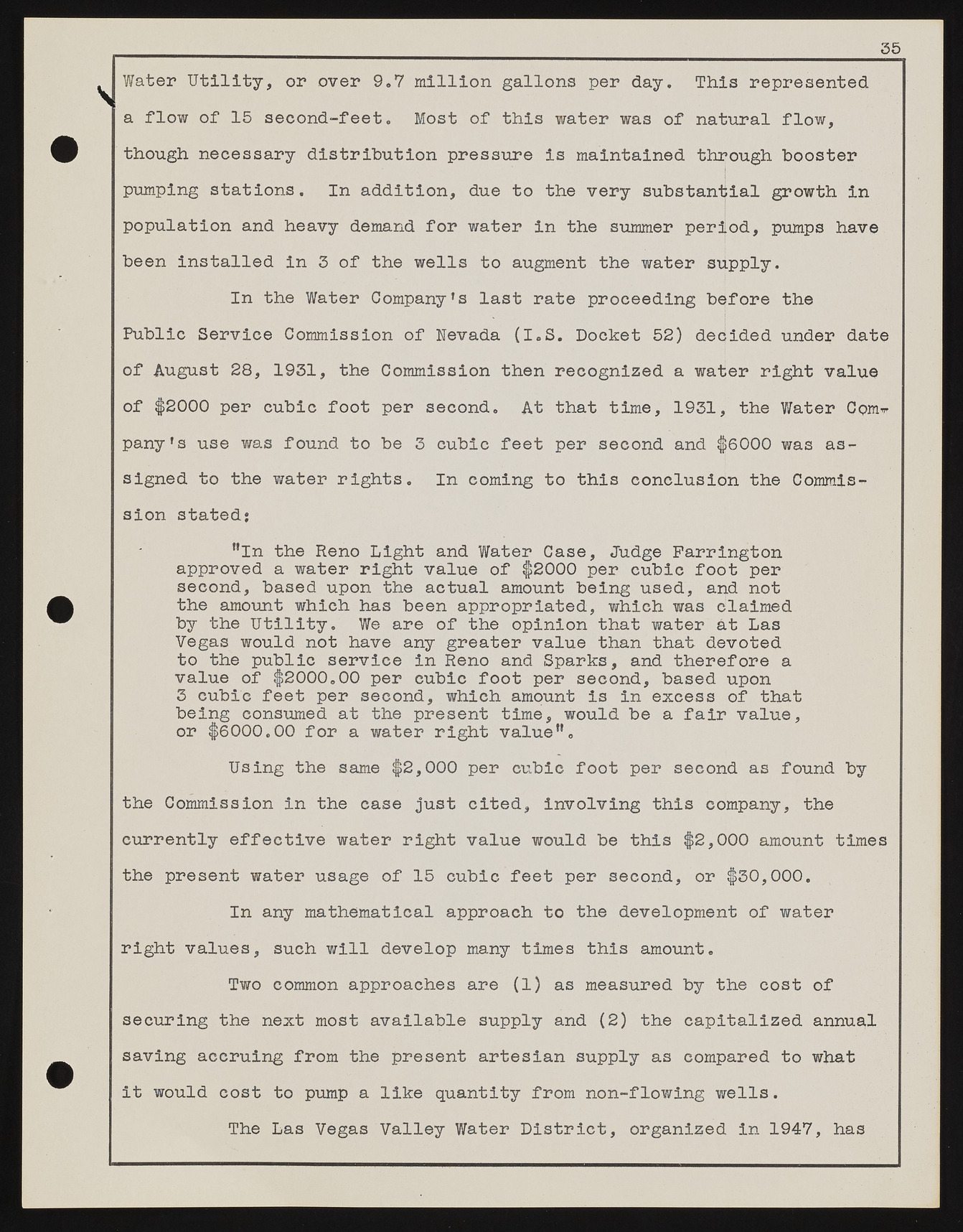Copyright & Fair-use Agreement
UNLV Special Collections provides copies of materials to facilitate private study, scholarship, or research. Material not in the public domain may be used according to fair use of copyrighted materials as defined by copyright law. Please cite us.
Please note that UNLV may not own the copyright to these materials and cannot provide permission to publish or distribute materials when UNLV is not the copyright holder. The user is solely responsible for determining the copyright status of materials and obtaining permission to use material from the copyright holder and for determining whether any permissions relating to any other rights are necessary for the intended use, and for obtaining all required permissions beyond that allowed by fair use.
Read more about our reproduction and use policy.
I agree.Information
Digital ID
Permalink
More Info
Rights
Digital Provenance
Publisher
Transcription
35 Water Utility, or over 9.7 million gallons per day. This represented a flow of 15 second-feet. Most of this water was of natural flow, though necessary distribution pressure is maintained through booster pumping stations. In addition, due to the very substantial growth in population and heavy demand for water in the summer period, pumps have been installed in 3 of the wells to augment the water supply. In the Water Company’s last rate proceeding before the Public Service Commission of Nevada (I.S. Docket 52) decided under date of August 28, 1931, the Commission then recognized a water right value of $2000 per cubic foot per second. At that time, 1931, the Water Corner pany's use was found to be 3 cubic feet per second and $6000 was assigned to the water rights. In coming to this conclusion the Commission stated: wIn the Reno Light and Water Case, Judge Farrington approved a water right value of $ 2 0 0 0 per cubic foot per second, based upon the actual amount being used, and not the amount which has been appropriated, which was claimed by the Utility. We are of the opinion that water at Las Vegas would not have any greater value than that devoted to the public service in Reno and Sparks, and therefore a value of $2 0 0 0 . 0 0 per cubic foot per second, based upon 3 cubic feet per second, which amount is in excess of that being consumed at the present time, would be a fair value, or $6000.00 for a water right value". Using the same $2,000 per cubic foot per second as found by the Commission in the case just cited, involving this company, the currently effective water right value would be this $2 , 0 0 0 amount times the present water usage of 15 cubic feet per second, or $30,000. In any mathematical approach to the development of water right values, such will develop many times this amount. Two common approaches are (1) as measured by the cost of securing the next most available supply and (2 ) the capitalized annual saving accruing from the present artesian supply as compared to what It would cost to pump a like quantity from non-flowing wells. The Las Vegas Valley Water District, organized In 1947, has

